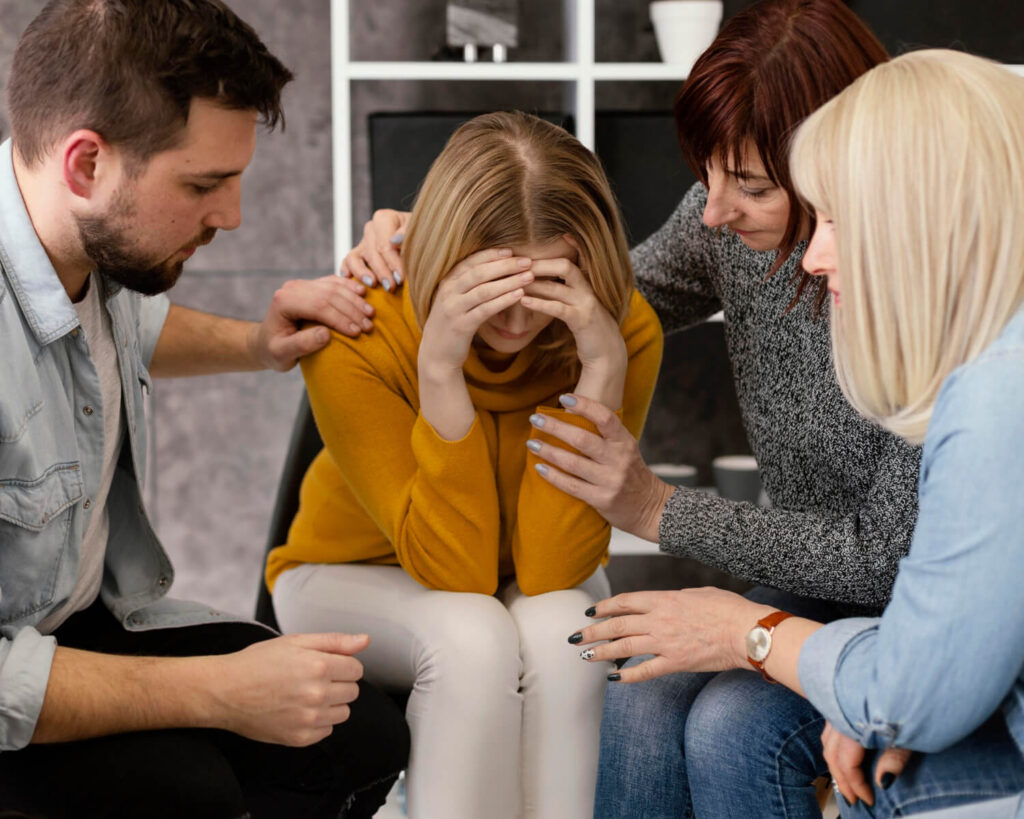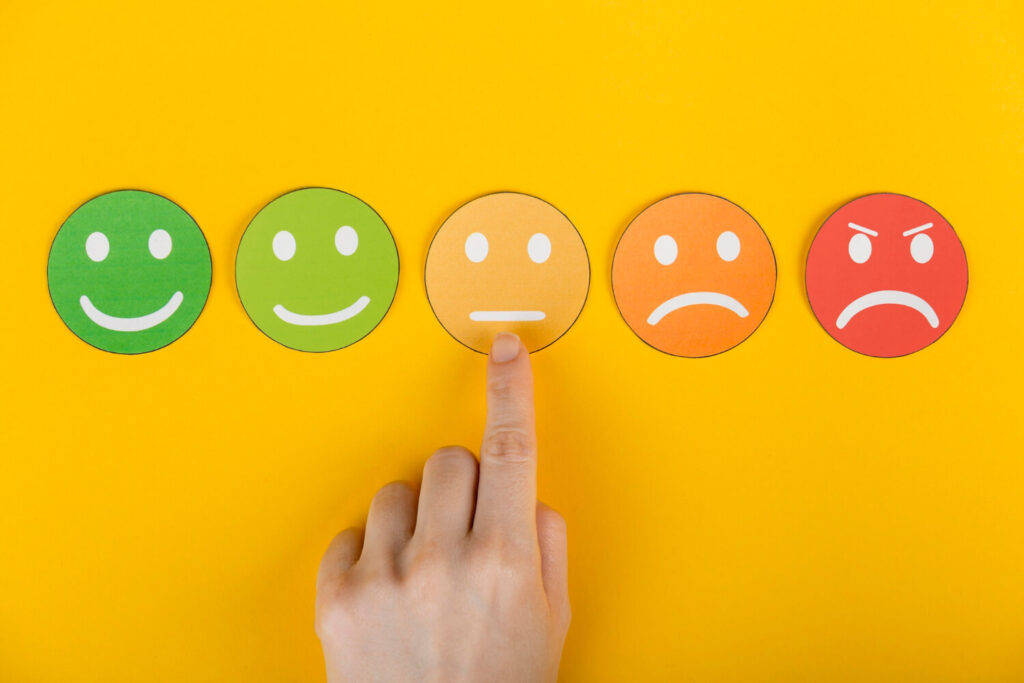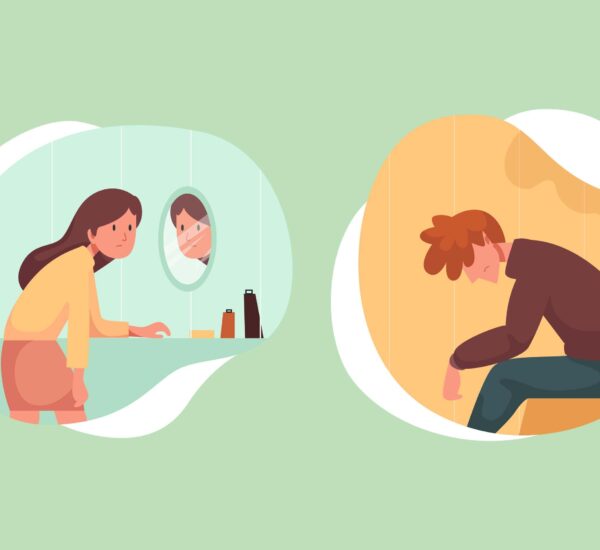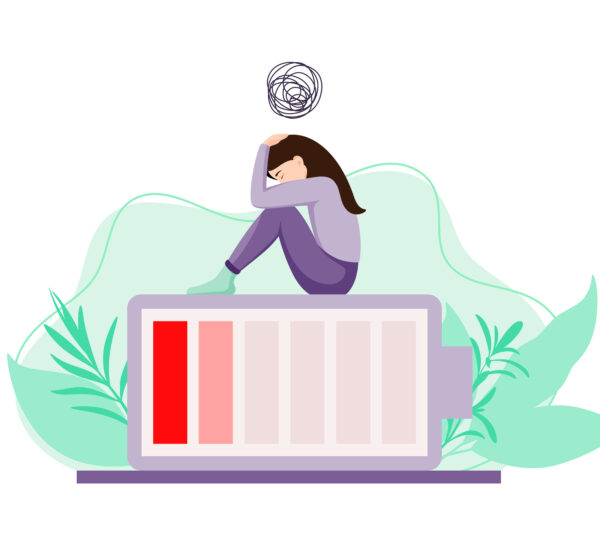When there’s a sudden change in mood, some individuals commonly think they have depression. However, it takes a lot of more depression symptoms to classify your illness as depression. In short, there’s a huge difference between feeling sad and extreme sadness, which is the most common warning sign of this depressive disorder.
It is important to understand and identify the medically known depression symptoms to accurately determine that you have depression. That way, immediate intervention can occur as it is widely known that having depression can also push negative thoughts like thoughts of suicide. In this blog, we’ll uncover the following symptoms to help patients to be aware of their condition and be on the right track towards mental healing. Let’s begin!
Depression is a common mental health disorder that affects millions of people worldwide. It is characterized by persistent feelings of sadness, loss of interest in activities, and a general lack of motivation. Depression can have a significant impact on a person’s daily life, affecting their personal relationships, work performance, and overall well-being. It is important to recognize the symptoms of depression and seek help as early as possible to manage the condition effectively.
Understanding Depression

As mentioned, depression is a complex mental health disorder that can manifest in different ways. Depression is a known mood disorder that implicates the person’s drive to do things. Commonly, the constant feeling of unexplained sadness takes a toll on them that it affects their daily activities. Thus, leaving them to be always choosing isolation, which affects their relationship with people around them.
Mental health plays a significant role in overall well-being, and untreated depression can have severe consequences. It is important to be aware of the risk factors for depression, such as a family history of the condition, trauma or stressful life events, certain medical conditions, and substance abuse.
These factors can have an impact to patients that can be alarming, especially if it can lead to harmful choices in life. When a person has depression, they may feel lost at their emotions, which can influence them to do poor choices such as suicidal thoughts, self-harm, and suicide itself. Depression has become one of the top reasons why patients choose to end their life.
Common Types of Depression
While it is known for depression to be one of the mental disorders that is challenging to manage, it is important to analyze which kind of depression it is for better handling of the condition. There are various types of depression known in the medical field. Each type of depression has its own set of symptoms and duration, requiring different approaches to treatment. It is crucial for individuals experiencing symptoms of depression to seek professional help for an accurate diagnosis and appropriate management plan.
Common types of depression may include:
- major depressive disorder or clinical depression
- persistent depressive disorder or dysthymia
- bipolar disorder
- seasonal affective disorder
- perinatal depression
- postpartum depression.
The Importance of Recognizing Depression Early

Aside from preventing the possible consequences of depression, recognizing this condition early on also provides other benefits to the patient and their family members. Through early recognition of the condition, it can help patients to know the right way of handling the condition. That involves acknowledging that they are depressed and understanding the suitable forms of treatment to better manage depression symptoms.
At the same time, patients can have awareness of how severe their condition is, and understand that they shouldn’t have to carry the burden alone. When dealing with depression, it can take a lot of effort, energy, and sometimes resources to lift its effect to the patients. That’s why early intervention is a must to address and to better manage the condition better.
Symptoms of Depression
Emotional Symptoms of Depression
Depression is often characterized by a range of emotional symptoms, commonly the sudden shift in emotions. Recognizing these emotional symptoms is essential for early diagnosis of depression. Let’s discuss each of them below!

Persistent Sadness and Hopelessness
Persistent sadness and a sense of hopelessness are hallmark symptoms of depression. Individuals with depression may experience a deep and pervasive feeling of sadness that persists for weeks or even months. This persistent depressive disorder, also known as major depression, can significantly impact a person’s daily life and functioning.
The depressed mood may be accompanied by other emotional and physical symptoms, such as changes in appetite, sleep disturbances, and difficulty concentrating. It is important to recognize these symptoms as signs of depression and seek help from a healthcare professional for an accurate diagnosis and appropriate treatment.
Loss of Interest in Previously Enjoyed Activities
Another key emotional symptom of depression is a loss of interest in activities that were once enjoyable. Individuals with depression may find themselves no longer interested or motivated to engage in hobbies, social activities, or even spending time with loved ones. This loss of interest can be disruptive to daily life and can lead to feelings of isolation and withdrawal.
Recognizing this symptom is important in early diagnosis, as it can provide insight into a person’s emotional state and help guide appropriate treatment options. If you or someone you know is experiencing a loss of interest in previously enjoyed activities, it is essential to seek help and support from a healthcare professional or a mental health helpline.
Feelings of Guilt and Worthlessness
Lastly, emotional depression symptoms may also involve feelings of guilt and worthlessness. It is a common emotional experience with intense feelings of guilt, often blaming themselves for their negative emotions and struggles. These feelings of guilt can be irrational and exaggerated, leading to a negative self-image and a sense of worthlessness.
It is important to recognize these feelings as symptoms of depression and not as a reflection of personal character or worth. Seeking help and support from a healthcare professional can provide individuals with the necessary tools and treatment options to overcome these feelings and improve their mental health.
Physical Symptoms of Depression
Although depression is known for its emotional aspect, it can also manifest depression symptoms through the physical aspect. These physical symptoms can often be attributed to the emotional distress caused by depression. Recognizing these physical symptoms is important in understanding the full impact of depression on a person’s well-being and seeking appropriate treatment.
Here are some of the common physical symptoms:

Changes in Sleep Patterns
Depression can disrupt normal sleep patterns, leading to sleep disturbances. Some individuals with depression may experience insomnia, where they have difficulty falling asleep or staying asleep throughout the night. Meanwhile, others may find themselves oversleeping or feeling excessively tired during the day. These changes in sleep patterns can further impact a person’s mood and overall well-being.
Recognizing these sleep disturbances as symptoms of depression is crucial for early diagnosis and appropriate treatment. By addressing both the emotional and physical symptoms of depression, individuals can improve their sleep quality and overall mental health.
Weight Changes and Appetite Fluctuations
Additionally, one of the depression symptoms may involve noticeable weight changes and appetite fluctuations. Some individuals with depression may experience a loss of appetite, leading to weight loss and a decrease in overall nutrition. Others may experience an increase in appetite, leading to weight gain.
Take note that in cases like these, changes in weight and appetite can further impact a person’s self-esteem and body image, contributing to feelings of guilt and worthlessness. That’s why recognizing these depression symptoms for early diagnosis and appropriate treatment is important. By addressing both the emotional and physical aspects of depression, individuals can work towards improving their overall well-being and mental health.
Unexplained Physical Pain
Additionally, patients with this mental health condition may also experience one of the physical depression symptoms such as unexplained pain. Individuals with depression may experience chronic pain, such as headaches, back pain, or muscular aches, without any identifiable physical cause.
It is important to recognize these physical symptoms as potential signs of underlying depression and seek appropriate help and support. Seek help from a healthcare professional to immediately manage this condition.
Why Immediate Intervention Is Critical
When these 2 types of depression symptoms are present, it only signifies the need for immediate intervention from a mental health expert. Depression is a type of mental health disorder that may be compared to a ticking bomb. If it is not dealt with immediately, it can result in grave consequences, which in the case of depression patients can lead to suicide.
Depression is a serious condition that requires medical attention and support from healthcare professionals. It is not something that can be overcome by simply “snapping out of it” or “thinking positively.” In that case, depression patients should seek help to manage the symptoms, and receive proper treatment.
Seeking help as soon as possible is essential in preventing the escalation of symptoms and reducing the risk of self-harm or suicide.
Preventing the Escalation of Symptoms
Effective treatment for depression is a must to prevent the escalation of depression symptoms. It may involve a combination of therapy, medication, and lifestyle changes. Here’s how it can help with managing depression symptoms:
- Therapy, such as cognitive behavioral therapy, can help individuals develop coping skills, challenge negative thought patterns, and address underlying issues contributing to depression.
- Medication, such as antidepressants, can help regulate brain chemistry and improve symptoms.
- Lifestyle changes, including regular exercise, healthy eating, and stress management techniques, can also play a significant role in managing depression symptoms.
Take note that some of the mentioned ways on avoiding escalation of symptoms must first involve a consultation with a health expert. That way, a more appropriate form of therapy and medication can be provided for your depression case.
When to Seek Help

Knowing when to seek help for depression is crucial in managing the condition and improving overall well-being. If you experience any of the mentioned depression symptoms, it is important to reach out to a healthcare provider or mental health professional for evaluation and diagnosis.
At the same time, seeking help is especially important if you experience thoughts of self-harm or suicide. It is also essential to have a strong support system in place, including trusted individuals who can provide emotional support and guidance. Remember, you are not alone, and there are resources available to help you navigate through this challenging time.
Finding the Right Healthcare Provider
Aside from knowing the common symptoms and possible treatment options, it is also important to have access to experts that can help you in your mental healing journey. In that case, finding the right doctor for mental healing is vital.
When it comes to that aspect, there are tons of factors that people need to consider. A mental health professional, such as a psychiatrist or psychologist, can provide an accurate diagnosis and develop an individualized treatment plan. With this important role in your healing, that only means you should find the suitable doctor that is easy to work with, especially during therapy sessions.
Here are some of the factors you might want to check when choosing a health expert:
Works in A Reputable Hospital or Clinic
It is an important factor as patients can feel more at ease knowing that the doctor is a member of a well-respected hospital or clinic. Thus, helping patients to be able to communicate their burdens without questioning the diagnosis and findings.
Proximity
This factor is also important, especially if an emergency therapy session. Being able to connect with the doctor immediately allows the patient to know that there is a support system close by for better mental healing.
Available services
Patients should also look into the available medical services that the doctor can offer. It can involve allowing online consultations for more at ease sessions. With this method, patients can also feel relaxed when talking about their experiences. Thus, allowing them to take the talk therapy anywhere at the expense of their home or anywhere that is considered safe space.
Dealing with depression is challenging, especially on your own. That’s why it is important to take the steps needed for mental healing with the right psychiatrist. Make sure to check the mentioned factors to find the doctor for you.
Conclusion
Mental health problems are diseases that can be tough to manage. Most patients don’t realize that their experiences may be due to an underlying cause, which can be depression. That’s why it is important to be well aware of the depression symptoms to know the next best step for your well being.
There are various depression symptoms mentioned earlier. If any of those signs match what you’re currently experiencing, it is best to seek immediate help. Remember, recovery is possible, and seeking help is a sign of strength. By addressing depression proactively, you can improve your quality of life and well-being. Take the first step towards healing today.
Book an online consultation or visit a local health center for a session with a psychiatrist.



